 Petzlover
Petzlover Both American Pit Bull Terrier and Mountain Feist are originated from United States. Both American Pit Bull Terrier and Mountain Feist are of same height. American Pit Bull Terrier may weigh 24 kg / 52 pounds lesser than Mountain Feist. American Pit Bull Terrier may live 3 years less than Mountain Feist. Both American Pit Bull Terrier and Mountain Feist has almost same litter size. Both American Pit Bull Terrier and Mountain Feist requires Low Maintenance.
Both American Pit Bull Terrier and Mountain Feist are originated from United States. Both American Pit Bull Terrier and Mountain Feist are of same height. American Pit Bull Terrier may weigh 24 kg / 52 pounds lesser than Mountain Feist. American Pit Bull Terrier may live 3 years less than Mountain Feist. Both American Pit Bull Terrier and Mountain Feist has almost same litter size. Both American Pit Bull Terrier and Mountain Feist requires Low Maintenance.
 The history of the American Pit Bull Terrier might be a confusing one to some dog lovers and certainly to the general public that tends to lump all the “bully” breeds into a category called “pit bull”. This is because of the negative reputation this group of breeds has acquired over the past 30-50 years due to misuse and mis-breeding by the dog fighting industry. This categorization includes the American Pit Bull Terrier, The American Staffordshire Terrier, the Bull Terrier and the Staffordshire Bull Terrier.
The history of the American Pit Bull Terrier might be a confusing one to some dog lovers and certainly to the general public that tends to lump all the “bully” breeds into a category called “pit bull”. This is because of the negative reputation this group of breeds has acquired over the past 30-50 years due to misuse and mis-breeding by the dog fighting industry. This categorization includes the American Pit Bull Terrier, The American Staffordshire Terrier, the Bull Terrier and the Staffordshire Bull Terrier.
There is major confusion and disagreement on the difference between the American Pit Bull Terrier and the American Staffordshire Terrier. The AKC does not recognize the American Pit Bull Terrier as a separate breed, but its founder and the UKC, ADBA do so. In the 1930’s the American Pit Bull Terrier was a recognized breed and in response to the negativity of pit-fighting, they renamed it as the American Staffordshire Terrier.
The American Pit Bull Terrier was developed to be a little larger in size than the Staffordshire in both height and weight. This breed comes from crossing various Bull and Terrier breed to get a working dog. The Amstaff for the most part is bred to be a show dog and is not usually a “street dog” used in dog fighting rings. The direct ancestors of the APBT are the Old English Bulldogs and the Old English Terriers. These dogs are great family dogs, gentle beyond comparison unless raised to fight. They make great therapy dogs as well as police dogs. They are not by nature cruel, aggressive or attack dogs.
Both professional confirmation breeders and street fight breeds have developed new strains of the American Pit Bull Terrier. A few are worth mentioning here.
One of the oldest strains of the American Pit Bull Terrier they are red in color and that red is a very unique tone. They have a copper colored coat and nose with red nails, red lips and amber or red eyes. These dogs were originally from Ireland and when they came to America they had the red nose. Originally bred for gameness, it is the red color that is sought after now.
These are another old breed, but they have black noses and were initially bred by John P. Colby in the late 1800s. These dogs were known to be indominable fighting dogs and were bred into almost every line of American Pit Bull Terriers that exist today. The line is still maintained by the Colby family.
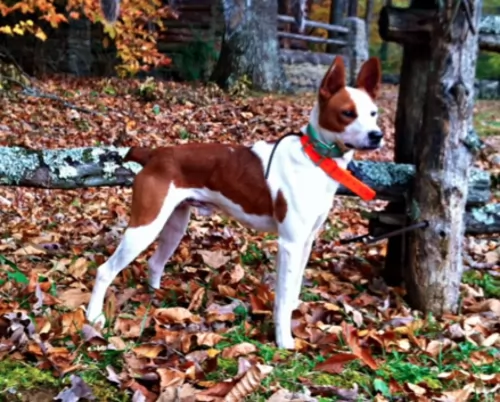 In the Southern portion of North America, the Mountain Feist was developed. It is the Ozarks and Southern Appalachia that the Mountain Fiest calls his ancestral home. The breed dates back centuries and looks very much like a Jack Russell or rat terrier. George Washington, Abraham Lincoln and William Faulkner all featured the breed in their writings. For Washington it was his diary, Lincoln the poem “The Bear Hunt” and Faulkner “Go Down Moses”. These dogs, much like the Curs, were an important part of the early pioneer days in America.
In the Southern portion of North America, the Mountain Feist was developed. It is the Ozarks and Southern Appalachia that the Mountain Fiest calls his ancestral home. The breed dates back centuries and looks very much like a Jack Russell or rat terrier. George Washington, Abraham Lincoln and William Faulkner all featured the breed in their writings. For Washington it was his diary, Lincoln the poem “The Bear Hunt” and Faulkner “Go Down Moses”. These dogs, much like the Curs, were an important part of the early pioneer days in America.
The name Feist means a noisy, small dog in ancient languages. The Feist was developed in the South, the rural areas, in order to hunt and eliminate vermin and small prey animals. The breed was originally a cross between British terriers and hounds from Native Americans. Many others think the feist is not a breed but a type, a working dog which can vary individual to individual.
The Mountain Feist of today has been bred for hunting performance over generations of time. They hunt racoons, squirrel and rabbits among others. They can track even larger game. Other varieties of the feist include the Bench Legged Feist and the Pencil-tail Feist. This is an energetic working dog, curious, intelligent and alert. It is a loud, barky dog that needs to learn a “no bark” command or it may drive you crazy. The breed make good hunting dogs, watch dogs and companions.
The breed was recognized by the United Kennel Club (UKC) in 2015, but not by the AKC or American Kennel Club. Other breed organizations include the National Cur & Feist Breeder’s Association, The National Feist Breeder’s Association, The American Treeing Feist Association, and the Shadowtails Outdoors Group.
 True to their reputation as fighters, the American Pit Bull Terrier looks like one – powerful, strong and well built. This belies their gentle disposition but too often they are judged by their looks. With a broad, brick shaped head, thick neck and deep chest, they are stocky, muscular and agile. They usually have cropped ears, but the tails are not docked. Their legs are strong and hindquarters especially muscular. These dogs are much stronger than they look. Round soulful eyes are one of the traits that people who keep these dogs as companion animals love about them. They have a scissor bite and one of the strongest jaws of all domesticated canines.
True to their reputation as fighters, the American Pit Bull Terrier looks like one – powerful, strong and well built. This belies their gentle disposition but too often they are judged by their looks. With a broad, brick shaped head, thick neck and deep chest, they are stocky, muscular and agile. They usually have cropped ears, but the tails are not docked. Their legs are strong and hindquarters especially muscular. These dogs are much stronger than they look. Round soulful eyes are one of the traits that people who keep these dogs as companion animals love about them. They have a scissor bite and one of the strongest jaws of all domesticated canines.
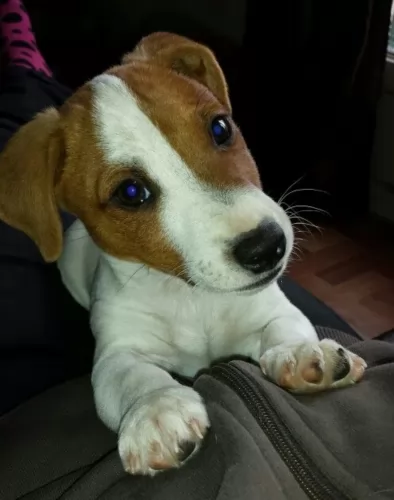 The Mountain Feist is a medium sized dog with pointy ears that are long and fold over. With their sharp nails that are curved they can climb. Their hind legs are strong to support that activity as well. They have small, dark eyes, a black nose and a muzzle that is medium length and a round skull. The neck is strong, and they have a pretty deep chest. The Mountain Feist tail is bushy, high and erect. There coats come in a variety of colors including blue, black, white, red and brown with the brown being the most common.
The Mountain Feist is a medium sized dog with pointy ears that are long and fold over. With their sharp nails that are curved they can climb. Their hind legs are strong to support that activity as well. They have small, dark eyes, a black nose and a muzzle that is medium length and a round skull. The neck is strong, and they have a pretty deep chest. The Mountain Feist tail is bushy, high and erect. There coats come in a variety of colors including blue, black, white, red and brown with the brown being the most common.
There is a lot of variation of make up and type within the breed itself. Until the last decade or so the breed was fairly isolated among squirrel hunters and there was little cross breeding with other dogs. On the other hand, dogs in the regions where the Mountain Feist was isolated were crossed with them to give them the tree climbing ability, change their size, sharpen their senses or one particular sense and change their appearance.
This is why in different regions you will find Mountain Feist with attributes of the Curs, or the Elkhounds, the Terriers, Spitz or Coonhounds. This accounts for the various types of Mountain Feist Dogs.
 For those who live with the American Pit Bull Terrier there is no better dog. The APBT loves people and loves children. They think they are lap dogs, and they certainly are watch dogs. They love their people but their barks at strangers at home are not because they are protecting their people but rather they are greeting the strangers into their home. Unfortunately, they will not greet another dog in the same way. However, when their people are seriously threatened they will give their lives to defend them.
For those who live with the American Pit Bull Terrier there is no better dog. The APBT loves people and loves children. They think they are lap dogs, and they certainly are watch dogs. They love their people but their barks at strangers at home are not because they are protecting their people but rather they are greeting the strangers into their home. Unfortunately, they will not greet another dog in the same way. However, when their people are seriously threatened they will give their lives to defend them.
These are strong, confident dogs who want to please their people. They love children and make great family dogs but require a strong owner and a strong pack leader. The need to be under control around other dogs and because of their strength, need a strong owner. It is their aggression towards other animals that must be controlled.
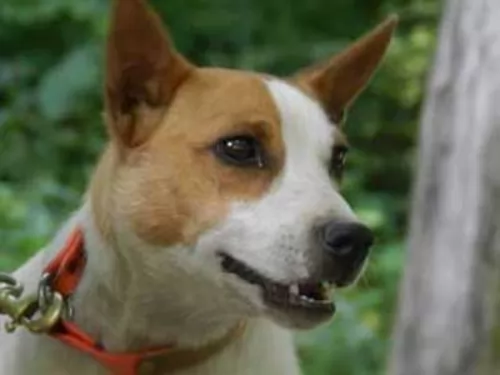 Yes, they very much enjoy playing with children.
Yes, they very much enjoy playing with children.
Tree climbing and stamina.
They need space and land on which to run every day. If you are in an apartment, make sure you have access to a dog park.
They are very intelligent and learn quickly. They love to please but can also be stubborn.
 Though the American Pit Bull Terrier is healthier than most large dogs, they do have an issue with hip dysplasia. Breeders have been working to breed this out of the APBT and their work in this area has helped with the other issues with the patella, heart and thyroid. The APBT can have skin allergies and Demodex Mange. This condition can be either deadly or just a localized skin issue. Immunizations and testing is essential for this breed. When not immunized, American Pit Bull Terrier puppies have a greater incidence of parvovirus than other breeds. They also might have cataracts and congenital heart disease.
Though the American Pit Bull Terrier is healthier than most large dogs, they do have an issue with hip dysplasia. Breeders have been working to breed this out of the APBT and their work in this area has helped with the other issues with the patella, heart and thyroid. The APBT can have skin allergies and Demodex Mange. This condition can be either deadly or just a localized skin issue. Immunizations and testing is essential for this breed. When not immunized, American Pit Bull Terrier puppies have a greater incidence of parvovirus than other breeds. They also might have cataracts and congenital heart disease.
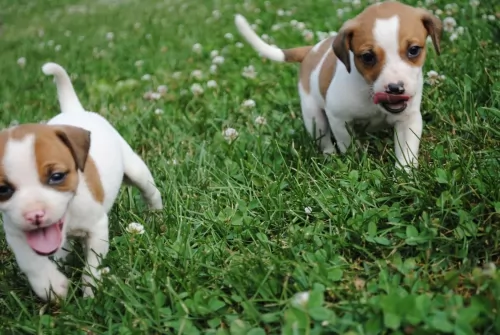 Like most breeds that are isolated, the Mountain Feist does not have a lot of known genetic health issues. They are generally healthy and known to live as many as eighteen years. Perhaps the biggest threat to their lives is the hunting accident, harming joints or paws in hunting situations or being attacked by a larger animal. There are no real genetic threat. Of course, with any dog that has folded ears there is always the possibility of infection or allergies. Keep their ears clean. The other possible concern is hip dysplasia in such an active dog. This can lead to lameness or arthritis. Obesity is another concern that could also lead to hip dysplasia.
Like most breeds that are isolated, the Mountain Feist does not have a lot of known genetic health issues. They are generally healthy and known to live as many as eighteen years. Perhaps the biggest threat to their lives is the hunting accident, harming joints or paws in hunting situations or being attacked by a larger animal. There are no real genetic threat. Of course, with any dog that has folded ears there is always the possibility of infection or allergies. Keep their ears clean. The other possible concern is hip dysplasia in such an active dog. This can lead to lameness or arthritis. Obesity is another concern that could also lead to hip dysplasia.
 How you feed your American Pit Bull Terrier puppy is important to her health as an adult and long life. The adult dog should be fed one and a half to two and a half cups of high quality food twice a day. Puppies should be fed more often as they grow. DO not feed your APBT soft or canned dog food. Their food should be dry. Be careful not to feed too much as you do not want an obese American Pit Bull Terrier.
How you feed your American Pit Bull Terrier puppy is important to her health as an adult and long life. The adult dog should be fed one and a half to two and a half cups of high quality food twice a day. Puppies should be fed more often as they grow. DO not feed your APBT soft or canned dog food. Their food should be dry. Be careful not to feed too much as you do not want an obese American Pit Bull Terrier.
As previously mentioned this is a healthy breed with problems with:
These are usually inherited, and the pup may show signs early, or they could be developed later in life. They can be removed.
Hip dysplasia as in many larger, stronger breeds this can be a major problem. Breeds should test for it and APBT breeders are attempting to breed it out of the APBT.
This is a congenital issue that breeders are also breeding against and if they have it your American Bit Bull Terrier was likely born with it.
Many APBT are allergic to grasses or out outside allergens. Shots or medication can deal with these.
This is an athletic, joyful breed that loves to play, love sports and loves any activity that bonds it with its family. Some of the many sports the American Pit Bull Terrier likes to participate in include: agility, obedience competition, weight pulling, lure coursing and fly ball. He also needs backyard exercise and daily walks.
When walking your American Pit Bull Terrier, make sure she is on a leash as the breed has a tendency to be aggressive with other dogs coming into their space. The APBT loves to work. They are good therapy dogs, search and rescue dogs, even service dogs.
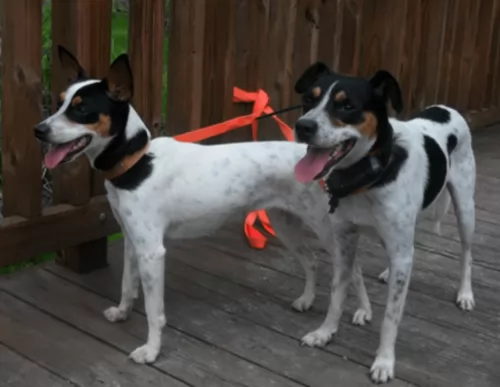 These are very active pups who need a high protein, high quality dry food. Feed a cup to a cup and half broken down into three meals daily. Do not overfeed your puppy.
These are very active pups who need a high protein, high quality dry food. Feed a cup to a cup and half broken down into three meals daily. Do not overfeed your puppy.
Feed the adult about two cups a day broken into two meals. Again, you are looking for a high quality, high protein dry food. Do not overfeed and watch for obesity.
This is a very active breed – a hunting dog with a lot of stamina, strength and energy. They need plenty of exercise as the terrier side of them is just a little hyper. They need at least two walks per day, and they are not great apartment dogs. They need both mental and physical stimulation. This little dog can keep going at a good rate for a long time.